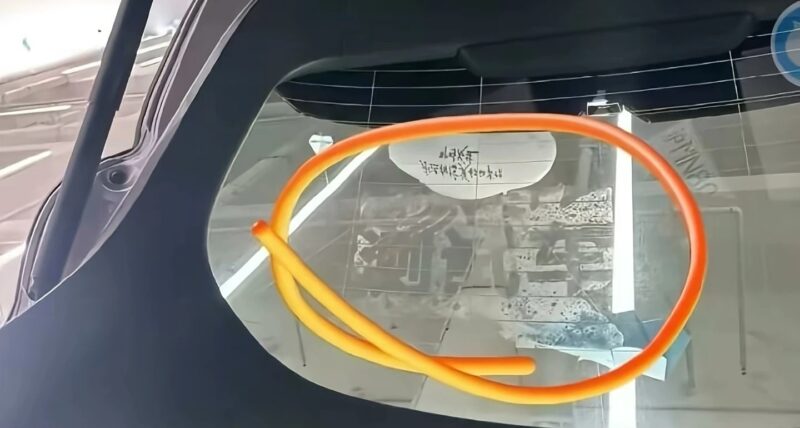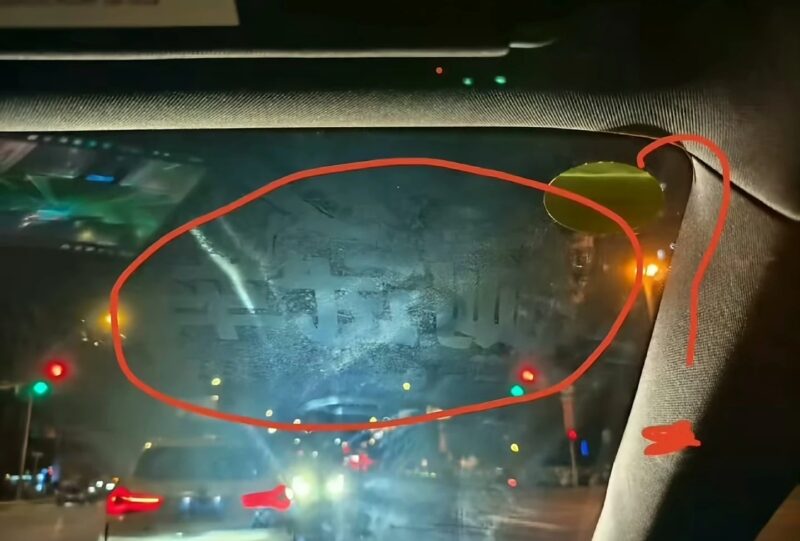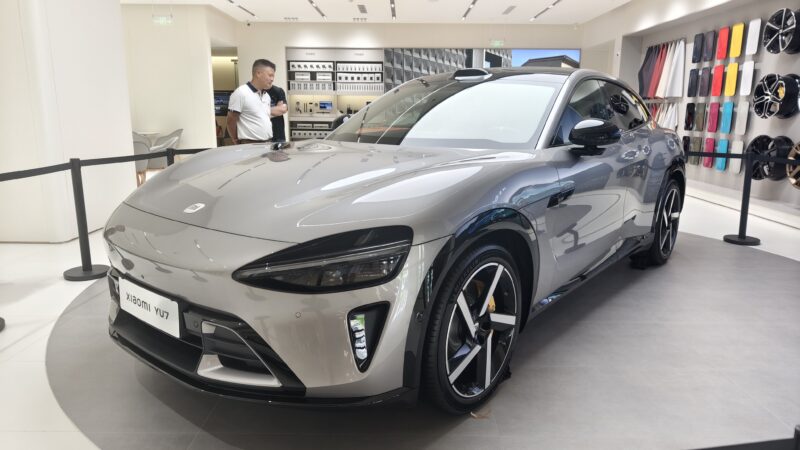Xiaomi defends YU7 “test car” sticker residue as owners complain of windshield marks
Some Xiaomi YU7 owners in China recently reported finding faint “test car” marks on their windshields after delivery. The traces appeared to be residue from static stickers used during factory inspections. One owner noticed the marks when shining headlights on the windscreen at night, while others shared similar experiences on social media. Although the marks do not affect the vehicle’s performance, they raised concerns about the thoroughness of Xiaomi’s final inspection and sparked widespread discussion among early buyers.
Xiaomi Auto Vice President Li Xiaoshuang addressed the matter on social media, explaining that the stickers were applied during static evaluations of randomly selected vehicles to ensure product quality. According to Li, the marks are hidden traces that can be effectively removed with a damp towel. He apologised for the confusion caused and confirmed that the company has already improved the sticker materials to prevent the issue from recurring.
Both Li Xiaoshuang and Xiaomi Public Relations Head Wang Hua reiterated the explanation online. They noted that the practice of labelling cars under review is a standard part of the production process. Still, they acknowledged that the follow-up cleaning procedure failed to prevent residual marks from being noticed by customers. The company said that all future vehicles undergoing random inspections will not face the same situation.
The incident drew attention on social media after several owners shared their experiences, raising questions about quality control. While the issue does not affect vehicle performance, it has created concerns among some buyers about the completeness of their new cars.
Industry observers pointed out that routine factory inspections, including temporary labelling, are standard across automakers. However, they also noted that minor oversights in final cleaning and inspection can lead to negative consumer perceptions, especially in a highly competitive market where expectations are rising.
The YU7 SUV, launched earlier this year, is among Xiaomi’s first mass-market electric vehicles. The incident highlights the scrutiny facing new entrants to the automotive sector, where even minor details can influence consumer trust.
Xiaomi stated that it aims to prevent similar issues in future deliveries with improvements to the inspection process.





